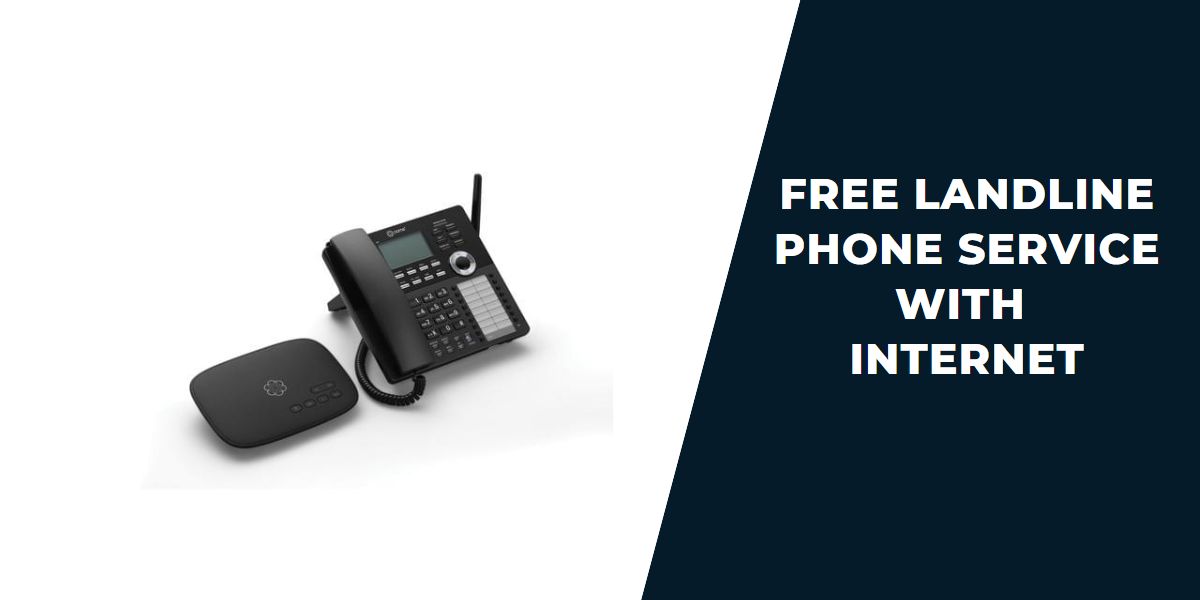Let’s cut to the chase—landline phone service might sound old-school in this age of smartphones and instant messaging, but guess what? It’s still a game-changer for many people. Yep, that classic landline is not just hanging around for nostalgia; it offers reliability, clarity, and features you might not even realize you need. Whether you're running a business, maintaining a home office, or simply want a dependable way to stay connected, landline phone service is worth a second look.
Now, I know what you're thinking—“Why bother with a landline when my smartphone does everything?” Fair point, but hear me out. Landlines have some serious advantages that mobile phones just can't match. We’re talking about crystal-clear calls, no dropped connections, and even power during emergencies when your cell signal goes kaput. Plus, let's not forget the affordability factor for those who don't want to be tied down by expensive data plans.
So, buckle up because we’re diving deep into the world of landline phone service. From its benefits to the best providers, we’ll cover it all so you can decide if it’s right for you. And trust me, by the end of this, you might just start thinking twice about cutting that cord for good.
Table of Contents
- Introduction: Why Landlines Still Rule
- A Quick History of Landline Phone Service
- The Top Benefits of Landline Phone Service
- How Much Does Landline Phone Service Cost?
- Best Landline Phone Service Providers
- Installation Process and What to Expect
- Landlines in Emergencies: A Lifesaver
- Landline vs Mobile: Which One Wins?
- The Future of Landline Phone Service
- Tips for Choosing the Right Landline Plan
- Final Thoughts: Is Landline Phone Service Right for You?
Introduction: Why Landlines Still Rule
Okay, let’s break it down. Landline phone service has been around for over a century, and while it may seem outdated compared to our sleek smartphones, it’s still incredibly relevant today. In fact, many households and businesses still rely on landlines for their communication needs. Why? Because they offer stability, reliability, and features that mobile phones can’t always provide.
For starters, landlines are powered differently than mobile phones. They use a wired connection, which means they don’t depend on cell towers or Wi-Fi. This makes them much more dependable during power outages or natural disasters when cell networks go down. Plus, they often come with features like voicemail, caller ID, and call waiting that are included in the package—no extra apps required.
Another big advantage? Cost. Believe it or not, landline phone service can be way more affordable than a monthly smartphone plan, especially if you’re only using it for basic calls. And for businesses, having a dedicated landline number can add a professional touch that mobile numbers just don’t provide.
A Quick History of Landline Phone Service
Let’s rewind the clock for a sec. Landline phones have been around since the late 1800s, thanks to Alexander Graham Bell’s invention of the telephone. Back then, phone lines were simple copper wires that connected one house to another. Fast forward to today, and landlines have evolved into advanced systems that use fiber optics and digital technology to deliver crystal-clear sound.
But here’s the thing—despite all the advancements in mobile tech, landlines haven’t gone away. In fact, they’ve adapted to meet modern needs. Many providers now offer bundled services that combine landline phone service with internet and TV, making it a more attractive option for families and businesses alike.
Evolution of Landline Technology
The evolution of landline technology is pretty fascinating. From rotary phones to touch-tone models, and now to IP-based systems, landlines have come a long way. Today’s landlines can even integrate with smart home devices, allowing you to make calls hands-free or control your home security system directly from your phone line.
The Top Benefits of Landline Phone Service
Alright, let’s talk about why landline phone service is still a solid choice in 2023. Here are some of the top benefits:
- Reliability: Landlines are powered by dedicated lines, so they’re less likely to drop calls or lose connection.
- Clarity: The sound quality on a landline is often better than a mobile phone, especially in areas with weak cell signals.
- Affordability: Many landline plans are surprisingly cheap, especially if you bundle them with other services.
- Emergency Preparedness: During power outages or emergencies, landlines often stay operational when mobile networks fail.
- Professionalism: For businesses, having a landline number adds credibility and makes you look more professional.
See what I mean? Landlines still bring a lot to the table, even in this digital age.
How Much Does Landline Phone Service Cost?
Now, let’s get into the nitty-gritty of pricing. The cost of landline phone service varies depending on your location, provider, and the features you choose. On average, you can expect to pay anywhere from $15 to $50 per month for a basic plan. However, if you opt for a bundled service that includes internet and TV, you could save even more.
Some providers also offer senior discounts or low-income options, making landlines accessible for everyone. And let’s not forget about international calling plans—if you frequently call overseas, a landline can save you big bucks compared to roaming charges on a mobile phone.
Factors That Affect Pricing
Several factors can affect the cost of your landline phone service:
- Location: Rural areas may have higher installation fees due to limited infrastructure.
- Features: Adding extras like voicemail or call forwarding can increase your monthly bill.
- Bundling: Combining landline service with internet or TV can lower your overall costs.
- Contract Length: Longer contracts often come with discounts, but be sure to read the fine print.
Best Landline Phone Service Providers
When it comes to choosing a landline provider, you’ve got plenty of options. Some of the top players in the game include AT&T, Verizon, Comcast, and CenturyLink. Each provider offers its own unique features and pricing plans, so it’s important to do your research before committing.
For example, AT&T is known for its reliable service and extensive network coverage, while Comcast offers killer bundled deals that include Xfinity internet and TV. Verizon, on the other hand, is a great choice if you need both landline and mobile service under one roof.
What to Look for in a Provider
When evaluating landline providers, consider the following:
- Coverage: Does the provider offer service in your area?
- Pricing: Are there hidden fees or unexpected charges?
- Customer Support: How responsive and helpful is their support team?
- Features: Do they offer the features you need, like call forwarding or caller ID?
Installation Process and What to Expect
So, you’ve decided to sign up for landline phone service—what’s next? The installation process is usually pretty straightforward. Most providers will send a technician to your home to set up the equipment, which typically includes a modem, router, and phone adapter. The whole process usually takes a couple of hours, and you’ll be up and running in no time.
One thing to keep in mind is that some providers may charge an installation fee, so be sure to ask about that upfront. Also, if you’re switching from another provider, make sure to schedule the installation for a time when you won’t need your phone service, just in case there’s any downtime during the transition.
Tips for a Smooth Installation
Here are a few tips to ensure a smooth installation process:
- Clear a space for the technician to work, preferably near an electrical outlet.
- Have your ID and billing information ready in case they need it.
- Be available during the scheduled time to answer any questions or provide access to your home.
Landlines in Emergencies: A Lifesaver
One of the biggest advantages of landline phone service is its reliability during emergencies. Unlike mobile phones, which rely on cell towers that can go down during natural disasters, landlines use dedicated copper or fiber-optic lines that are much more resilient. This makes them a crucial tool for staying connected when it matters most.
Plus, landlines don’t require batteries or charging, so you don’t have to worry about running out of power during a prolonged outage. And if you have a home security system, many of them integrate directly with your landline, ensuring that help is just a call away.
How Landlines Help in Emergencies
Here’s how landlines can be a lifesaver during emergencies:
- Reliable Connection: Landlines stay operational even when cell towers are down.
- Easy to Use: No need to worry about signal strength or battery life.
- Integration with Security Systems: Many home security systems rely on landlines to function properly.
Landline vs Mobile: Which One Wins?
Let’s face it—mobile phones are incredibly convenient, but they’re not perfect. While they offer portability and access to apps, they often fall short in terms of reliability and sound quality. Landlines, on the other hand, excel in these areas but lack the flexibility of mobile devices.
Ultimately, the choice between landline and mobile phone service depends on your specific needs. If you prioritize reliability and affordability, a landline might be the way to go. But if you need the freedom to take calls on the go, a mobile phone is obviously the better option.
Key Differences Between Landlines and Mobile Phones
Here’s a quick breakdown of the key differences:
- Reliability: Landlines win hands down when it comes to consistent connection.
- Cost: Landlines are often cheaper than mobile plans, especially for basic calling.
- Portability: Mobile phones obviously have the edge here.
- Features: Mobile phones offer more advanced features like apps and video calling.
The Future of Landline Phone Service
As we look to the future, it’s clear that landline phone service isn’t going anywhere anytime soon. While the number of landline users has declined over the years, there’s still a significant demand for this reliable form of communication. In fact, many providers are investing in new technologies to make landlines even better, such as Voice over IP (VoIP) systems that allow for more advanced features and lower costs.
For businesses, landlines will continue to play a crucial role in maintaining professional communication. And for households, especially those in rural or remote areas, landlines remain a dependable option for staying connected.
Tips for Choosing the Right Landline Plan
Ready to sign up for landline phone service? Here are a few tips to help you choose the right plan:
- Assess Your Needs: Determine how much you’ll use the landline and what features are most important to you.
- Compare Providers: Shop around and compare pricing, coverage, and customer reviews.
- Look for Discounts: Check for senior discounts, low-income options, or bundled deals.
- Read the Fine Print: Make sure you understand any fees or contract terms before signing up.
Final Thoughts: Is Landline Phone Service Right for You?
So, there you have it—the lowdown on landline phone service. While it may not be the first thing that comes to


